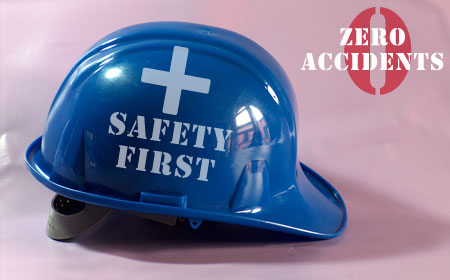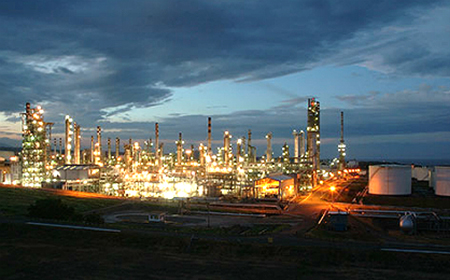February 4-5, 2013
9am – 5pm
Ascott, Makati City (Formerly Oakwood Hotel)
Fee: Php 13,000.00 / person plus 12% VAT
- Early Registration Payment: Ten-Percent (10%) Discount if PAID thirty (30) days before the training date
- Group Discount: Five-Percent (5%) on Three (3) or More Participants
[tabs slidertype=”left tabs”]
[tabcontainer]
[tabtext] About [/tabtext]
[tabtext] Course Outline [/tabtext]
[tabtext] Facilitator [/tabtext]
[tabtext] Bank Details [/tabtext]
[/tabcontainer]
[tabcontent]
[tab]
Synopsis of Training:
This course aims to introduce the concepts of hazard and risk assessment. It presents the methods available to assess and control risk in transmission and distribution and oil and gas pipelines. This course aims to ensure that the engineers will be able to support their decision based on risk assessment and management tools and will have an understanding of the methods available for the identification of threats and failure modes, the analysis of risk using qualitative and quantitative methods, methods of risk control, and the assessment of risk acceptability. It aims to ensure that the engineers appreciate all aspects of the subject, as it includes risk acceptability, risk control and risk management. It also covers regulatory issues and risk management strategies.
Course Objectives:
- Apply essential methods available for the identification of threats and failure modes
- Analysis and control and acceptability of risk
- Illustrate the concepts of hazards and risk assessment
- Apply risk calculation and assessment methods
- Manipulate pipeline failure frequency, and consequences methods
- Analyzes all aspects of risk acceptability, risk control and mitigation
- Identify regulatory issues and risk management strategies
- The module is delivered intensely through interactive lectures to allow students to engage and maintain their interest throughout the intensive school.
Who must attend:
- Engineers, designers, and managers who want to deepen their knowledge on risk issues, or who require a good, broad, understanding of these topics.
[/tab]
[tab]
Course Outline
- Principles of Hazard and Risk Assessment
- Concepts and Definitions
- What is a hazard, risk etc.?
- What is risk analysis, risk assessment and risk management?
- Why do we need risk assessment for pipelines?
- What to expect from a risk assessment?
- Hazard identification techniques
- Hazard identification exercise
- Risk Assessment Methods
- Introduction to different approaches
- Qualitative
- Index/Scoring Methods
- Semi-Quantitative
- Quantitative
- Code approaches to risk assessment
- Failure Frequency and Consequence Analysis
- How to determine pipeline failure frequency
- Historic data, generic models and prediction
- Safety, environmental, financial and other consequences
- Safety consequence analysis
- Risk Calculation
- Calculation of Risk
- Interaction length
- Individual and Societal
- Risk calculation exercise
- Presentation of Risk
- Risk Acceptability
- Voluntary and involuntary risk
- Individual and Societal Risk acceptance
- Decision process
- Cost Benefit Analysis
- Decision Theory
- Regulatory style and risk acceptance
- Risk Control
- Control and mitigation of risks
- Control of frequency and consequences
- Control of risk by Design, Operation and Inspection
- Risk Management Systems
- Risk management systems for pipelines
- Background and theory
- Risk management codes
[/tab]
[tab]
Engr. Abdollah Esmaeili
Abdollah was born in 1969 in Iran. He got his Diploma in mathematics & physics, 1986 _ 1990, Iran. He attained his B.Sc and MSc. in petroleum engineering from Petroleum University of Technology (PUT), Iran.
He is currently pursuing his PhD degree in petroleum engineering at University Technology Petronas (UTP), Malaysia. He has been working as a reservoir engineer in the oil & gas industry for the past 20 years for companies like National Iranian Oil Company (N.I.O.C), National Iranian South Oil Company (N.I.S.O.C), Aghajari Oil & Gas Production Company (AjOGPC).
Also, he teaches petroleum reservoir engineering courses in universities of Iran. He has written several papers in petroleum engineering accepted for presentation in international conferences. He has attended in several international conferences worldwide as speaker. He has lead several international scientific master class and workshops worldwide.
[/tab]
[tab]
BANCO DE ORO (BDO)
Account Name:
Aguila Group Companies (AGC) Development Corporation
Account Number:
00 543 801 3291
Bank Address:
Alfaro-Salcedo Village Branch, PCCI Bldg., 118 Alfaro St., Salcedo Village, Makati City 1227, Philippines
Swift Code:
BNORPHMM
[/tab]
[/tabcontent]
[/tabs]











+ There are no comments
Add yours